West Africa relies on fishing as a means of food security and as a livelihood much more so than the rest of the African continent. I chose the region as a case study for my Masters Thesis as I wanted to understand how important fisheries work there and exactly what goes on. We in Europe are strongly linked to West Africa through the fish that we buy in our markets or stores. Ghana’s biggest seafood and non-traditional export is canned tuna (John West, Petite Navire & other popular brands) and the EU imports over 95%. This got me interested in the tuna industry and thus the reason why I headed off there for a four-month research trip in mid 2013; the following stories are some of my experiences of Ghana on the inside.
I arrived in Ghana with the phone number of a girl my dad said he knew when he lived there a couple of years ago, he said she may or may not collect me at the airport. I also was armed with the email of a lecturer at a University 6 hours away in Cape Coast who said he could advise me. Other than that I was completely alone and on a tight budget, maybe for this reason my experiences are very different to other peoples. Therefore I won’t describe to you the ‘beautiful’ scenery nor the wonderful wildlife instead I’ll tell you a few tales of what I myself experienced.
The scenery I saw, with traces of beauty, were the beaches that stretch across the coastline from the Western Region right over to Togo and the vast jungles and forests in the Volta Region. Unfortunately the beaches in Ghana, where the tourists don’t go, are used as local latrines as the majority of houses, even in the urban areas, do not have toilet systems nor running water inside. So I quickly learned that you do not go for a stroll at certain times of the day, as people will be busy with their rituals. The leftovers will remain for weeks or even months, otherwise high tide will take the ‘packages’ away, though you will still clearly see everything floating along the beach. Safe to say I did not swim at any beach in Ghana. The beaches themselves were collective garbage dumps for the entire countries aquatic and coastal systems, you could see everything on the beach and after rough weather the piles of rubbish became so high it was necessary to meander around them. Going to the beach in Ghana was a bit of an ordeal, not just because of the rubbish or the human excrement, but because of the stream of persistent badgering, for some reason verbal harassment always escalated at the beach. From the second I stepped onto a beach until the moment I managed to escape from it I would be hit upon by rivers of men screaming ‘white woman, I love you etc.’ or from adults thrusting their screaming babies at me to hold or from groups of kids grabbing my legs, arms and basically everything. Personal space did not exist for those outings. I was expecting all the screaming as I knew that I appeared like a walking wallet (though that definitely wasn’t the case on my student budget). However, when you are completely alone, you are a women, when its 24-7 and when you have nowhere to go it can get very very weary.
My main objective of the trip was empirical data collection; to carry out at least 50 interviews/surveys with stakeholders in the tuna fishing business and compile a database of tuna trade statistics. From the start of my research it was a roller coaster ride, my first week in Ghana the EU banned all tuna exports from the country as there was illegal fishing activity reportedly taking place by the Ghanaian tuna fleet. Pause for entry of the little white European girl wanting to ask companies questions about tuna fishing. As you can imagine my arrival at many offices and at the fishing piers was met with abruptness, distrust and scepticism. In fact finding any of the offices was a task in itself, even the Ministerial offices; no addresses existed, no phone numbers worked and all emails bounced back. When I finally figured out where a building was, by wandering around in the excruciating heat and humidity for hours asking people, I was told that ‘no this person moved office’, ‘this person isn’t in’, ‘no comeback another day’, ‘no you are not permitted’ etc. To get into the fishing harbour I had to get past four security check points where at each of them I was quizzed by an immigration officer or a guard, luckily I’m Irish so therefore have a bit of knack for ‘chit chatting’ my way through difficult situations.
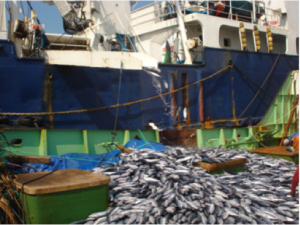
A tuna purse seiner transferring tuna at sea, 95% of this tuna ends up in Europe. It is not caught safely, sustainably or lawfully.
I spent my time between Tema, the biggest harbour and port in Ghana and a pretty ugly, polluted place, Accra the capital and Cape Coast in the West. Word of advice, do not go on a budget to Ghana as otherwise you will have to stay in some extremely dodgy accommodation. I had a maximum of fifteen-euro to spend per night on a room, for this price I had to stay in, well, some ‘funny’ places in the cheaper areas. Most nights when I would get home from fruitless data hunting I would be forced to sit in the dark with my torch trying to re-read one of the few books I’d brought. ‘Lights out’ was a regular occurrence as the Volta dam that supplies over 90% of the electricity to Ghana had dried up and the Government didn’t have enough money to power the diesel generators. Going out in the evening around the places I was staying, be it Accra or Tema, was just not worth the hassle and constant abuse from the Ghanaian men. In the day time I dealt with the continuous hissing and shouting as I put in my earphones, but at night they would go further and start grabbing etc. Therefore for the majority of my time in Ghana after 5pm I would be trapped at home. In Cape Coast, one of the tourist destinations in Western Ghana, harassment was much worse, but luckily I found a really great eco friendly hostel called Baobab, it was a much needed retreat once indoors with the nice staff and food that I could eat which didn’t make me run to the toilet!
In Cape Coast the streets were run by a mafia organization of local children; it was a complex social organization with definite structures, rules and trade systems. I had the opportunity to analyse the organization from an inside point of view as two of the main rulers, age nine and twelve adopted me. The main goals of this group were to extract money from the tourists on the streets or near the Baobab hostel. The oldest boy, 12, put together a letter looking for sponsorship for ‘school books’, ‘school clothes’ etc. It was a well-worded letter and expressed how interested the said student was in continuing their education or participating in a certain school related activity and how they just needed X amount. The letter was then copied by the next rank in the lines, the boys or girls from between 7 and 11, who would then carry it around to the targeted unsuspecting tourists. The lower level of the mafia was the youngest, from between 3 and 8. These kids would not carry a letter, instead they sold little snacks or baked goods. They would reel you in by asking you to buy one, when you said no they would as you to buy one for them, when you said no they would ask for money. They were well trained and would not retreat without a payment for a very long time, this final strategy usually worked very well as most tourists would pay them to just go away. Payments to the ranks for these different services depended on age and task of said employee, all payments however usually ended up in the hands of the waiting parents at home, empty hands were usually treated with a smack or worse. I was taken around in the evenings by the two leaders of this gang, they had respect amongst much of the community therefore harassment from men was considerably less. Unfortunately in the end they de-friended me fairly harshly, I was seen hanging out with a Rastafarian (who actually became my only and truly friend in Ghana). This to them was sacrilege, their strong ‘Christian’ community considered anyone with dreadlocks or styled hair worthy for hell. Ultimately I was classed as a prostitute by the children (their words) as I was good friends with a man who was not my husband and he was a Rastafarian. So thus ended my relations with the mafia gang.
I met my guardian angel on the day that I got malaria. His name was Justice and I could not of been luckier. The moment I met him, as he walked through this ‘hostel’ I was staying at in Nungua, I knew that he wasn’t the usual pervert who was going to give me crap, he was actually someone I could talk to. Unfortunately after hanging out for only a day with him I developed a high malarial fever and went downhill pretty fast. As I was alone in a hostel (actually a hut on the beach) I couldn’t take care of myself; thus after knowing me for only 24 hours Justice took me in and looked after me for over 1 week! I don’t remember much about the week as I became a bit delirious from the continuous fever, diarrhoea and vomiting; I couldn’t eat, drink or keep any pills down. And unfortunately Justice didn’t have a toilet or running water, there was a field about 500meters away…. So you can imagine the rest! Luckily after seven hardcore days the fever lifted (thanks to some herbs Justice gave me) and I saw the light, all the hospitals were on strike at that moment so that was not an option, in fact one of my friends who was in labour that week was sent home. But everyone has malaria there, every single person, and they get it every year and go to bed for a week till it passes; so it wasn’t a big deal in the end. I can see how older people and children die of it though, it completely wrecks your body. For almost two weeks afterwards I couldn’t really eat. I came home to Ireland with no muscles and 6Kg less of body weight. I will never ever forget my guardian angel Justice that’s for sure, he introduced me to some great parts of Ghana in the following weeks that I would have never seen as a tourist, I even got to go to Rita Marley’s studios and have a private performance from the band she manages! I’ll owe him forever.
In the end, thanks to Justice and some other amazing Ghanaians I met, I was infected by Ghana (Literally and metaphorically!). My Dad’s friend Esther did meet me at the airport! She is such an inspirational women that has gone through so much at the hands of men; she is living proof of survival, as, unfortunately, are many Ghanaian girls. The Ghanaian women are amazing legends, there’s nothing they don’t do, they are the most powerful women I have ever met and they deserve so much. I can say 1000% that the future of Ghana lies with them, they are the key to improving local livelihoods and sustainable development at the microeconomic level. Empower them and the region may have a better future. On the subject of Ghanaian men I have nothing to say! Also on the subject of the ‘Born-Again Christians’ (like the Evangelists and the Pentecosts) whom prowl the streets of Ghana collecting vulnerable people to ‘preach’ to I will say this: the majority of these groups are running African Society into the ground, they are depowering the people that need to be empowered the most by feeding them ideas and doctrines that are out-dated and untrue (e.g. Jesus loves you more if you donate more; you cannot do well in school without Jesus; we have black power that can control the white man; if you style your hair you will go to hell; gay people are the spawn of the devil).
My thesis, surprisingly, turned out to be a great success and I was actually sad to get on the plane to come home, I cried for a big part of the trip back. Arriving back to Ireland was really weird, everything was so boring, quiet and lifeless compared to the absolute insanity of Ghanaian life. To live and work how a large majority of the world lives really does wake you up, the way we live in the ‘West’ is not normal, it’s absolutely unique and luxurious. I prescribe an unaccompanied study or work trip in Ghana to everyone who lives as we do, you will be infected 🙂

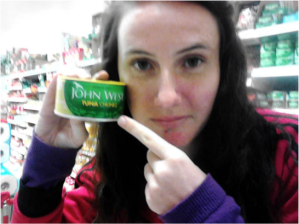
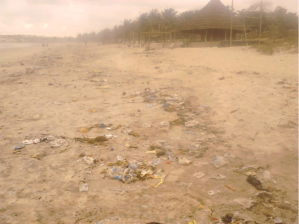
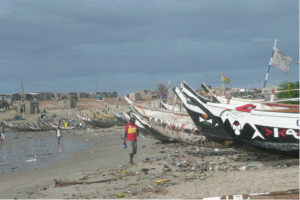
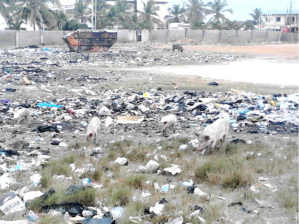
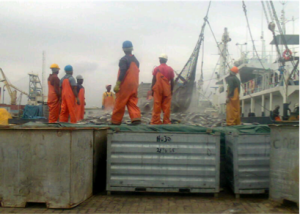
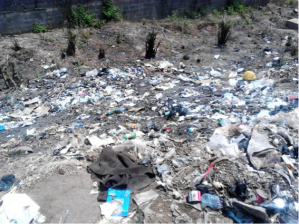
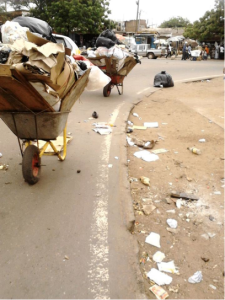
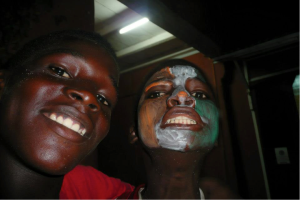
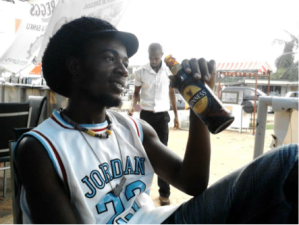
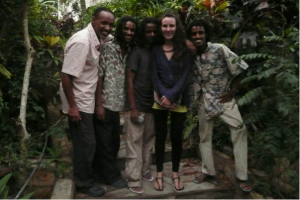
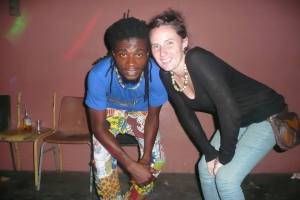
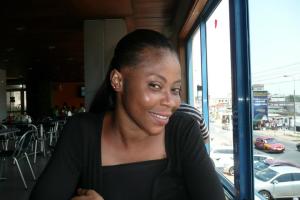
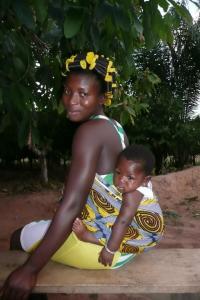
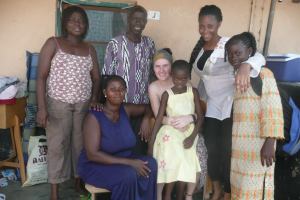
Liz, thank you for sharing all this. Although you had already told me a lot of it, you left me again without words.You must continue writing!
LikeLike